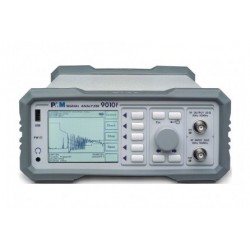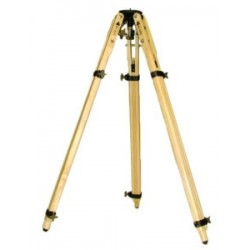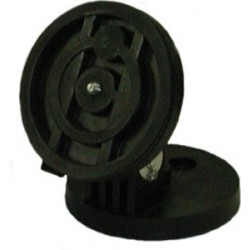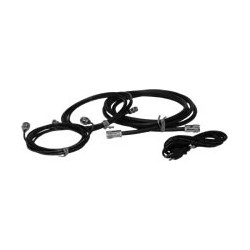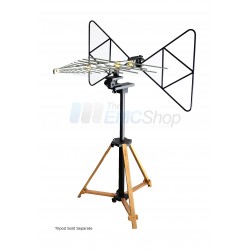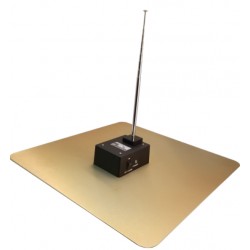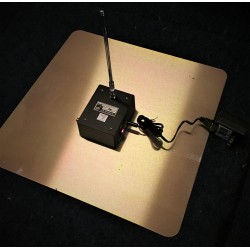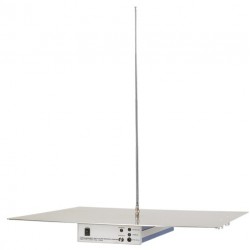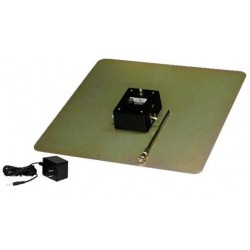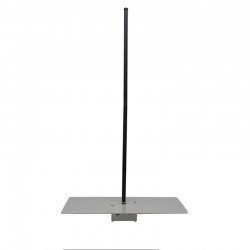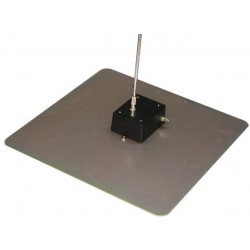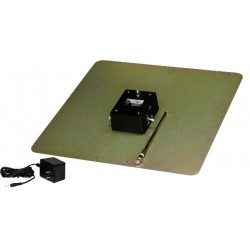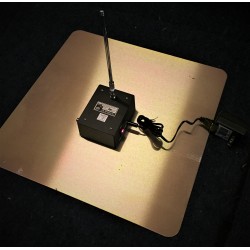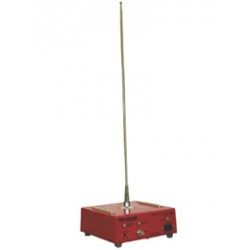No products
Product successfully added to your shopping cart
There are 0 items in your cart. There is 1 item in your cart.
EMC Monopole Antennas
- EMC Test Equipment
- Transient Generators
- RF Power Amplifiers
- DC - 300 kHz RF Amplifiers
- 10 kHz - 250 MHz RF Amplifiers
- 10 kHz - 400 MHz RF Amplifiers
- 10 kHz - 1 GHz RF Amplifiers
- 80 MHz - 1 GHz RF Amplifiers
- 1 GHz - 2 GHz RF Amplifiers
- 700 MHz - 4.2 GHz RF Amplifiers
- 1 GHz - 6 GHz RF Amplifiers
- 2 GHz - 8 GHz RF Amplifiers
- 6 GHz - 18 GHz RF Amplifiers
- 18 GHz - 40 GHz RF Amplifiers
- Pulse Amplifiers
- RF Field Strength Probes & Meters
- RF Conducted Immunity
- EMC Receivers/EMI Analyzers
- EMC Antennas
- Coupling Decoupling Networks (CDN's)
- Line Impedance Stabilization Networks (LISN's)
- RF Test Equipment
- EMC Probes
- EMC Measurement & Equipment Software
- Power Supplies
- Electrical Safety Analyzers
- High Precision Laboratory Power Analyzers & Meters
- Anechoic Chambers
- Over-the-Air (OTA) Test Chambers
- EMI RF Shielded Tent Enclosures
- RF Shielded Rooms
- EMC Absorber
- Positioning Equipment
- EMC/EMI Test Setup
- GTEM Cells / TEM Cells
- Reverberation Chambers
- Used RF Anechoic Chambers
- EMC Chamber Filters
- EMC Chamber Shielding Gaskets
- RF Shielded Doors
- Anechoic Chamber Accessories
- Fully Anechoic (FAR) Test Chambers
- Manufacturers
- 3ctest
- AE Techron
- AH Systems
- Amplifier Research
- Boonton
- Com-Power
- Diamond Engineering
- EM Test (Ametek CTS)
- EMC Partner
- EMC Test Design
- Empower High Power RF Amplifiers
- ETS-lindgren
- Log Periodic Dipole Array Antenna
- Near Field Probe Sets
- Double Ridge Horn Antennas
- Biconical Antennas
- Quad Ridge Horn Antennas
- Electric Field Probes
- GTEM's
- Positioners & Tripods
- Loop Antennas
- Biconilog Antennas
- LISN's (Line Impedance Stabilization Network)
- Shielded Enclosures/Rooms
- Monopole Antennas
- Field Generating Antennas
- Fischer Custom Communications
- Haefely Hipotronics
- Haefely EFT/Burst Immunity Test Systems
- Haefely Surge Combination Wave Test Systems
- Haefely Surge Damped Oscillating Wave Test Systems
- Haefely Electrostatic Discharge Test Systems (ESD)
- Haefely Surge Ring Wave Test Systems
- Haefely Surge Telecom Wave Test Systems
- Haefely Magnetic Field Test Systems
- Haefely CDN's (Coupling/Decoupling Networks)
- IFI Amplifiers
- Keysight (Agilent)
- MVG - Microwave Vision Group
- PMM / Narda
- Rohde & Schwarz RF Test Equipment
- Rohde & Schwarz Broadband RF Amplifiers
- Rohde & Schwarz Spectrum Analyzers
- Rohde & Schwarz Compliant EMI Test Receivers
- Rohde & Schwarz Isotropic RF Probes
- Rohde & Schwarz RF Signal Generators
- Rohde & Schwarz RF Switches
- Rohde & Schwarz Oscilloscopes
- Rohde & Schwarz RF Power Meters
- Rohde & Schwarz RF Power Sensors
- Schloder
- Schwarzbeck Mess-Elektronik
- Schwarzbeck Antennas
- Schwarzbeck Automotive Antennas
- Schwarzbeck Broadband Horn Antennas
- Schwarzbeck Biconical Antennas
- Schwarzbeck Logarithmic Periodic Broadband Antennas
- Schwarzbeck Stacked Log-Periodic Broadband Antennas
- Schwarzbeck Biconic Log-Periodic Antennas
- Schwarzbeck Dipole Antennas
- Schwarzbeck Rod Antennas
- Schwarbeck Antenna Baluns / Holders
- Schwarzbeck LISN Line Impedance Stabilisation Networks
- Schwarbeck Decoupling & Absorbing Clamps
- Schwarzbeck Field Probes
- Schwarzbeck Helmholtz Coils
- Schwarzbeck Antenna Masts
- Schwarzbeck Coupling/Decoupling Networks
- Schwarzbeck Antennas
- Solar Electronics
- Teseq (Schaffner)
- Teseq Automotive Transient Generators
- Teseq RF Test Equipment
- Teseq EFT/Burst Generators
- Teseq RF Immunity Generators
- Teseq ESD Guns
- Teseq Surge Generators
- Teseq Harmonics & Flicker Solutions
- Teseq Dips, Interrupts & Variations Equipment
- Teseq Ring Wave Generators
- Teseq Oscillatory Waves Generators
- Teseq Absorbing Clamps / Ferrite Tube
- Teseq EMC Antennas
- Teseq Current Probes
- Teseq Coupling Networks
- Thermo Keytek
- Vicreate
- Compliance Standards
- International (IEC/EN)
- EN/IEC 61000-3-2
- EN/IEC 61000-3-3
- IEC 61000-3-11
- IEC / EN 610000-3-12
- EN/IEC 61000-4-2
- EN/IEC 61000-4-3
- EN/IEC 61000-4-4
- EN/IEC 61000-4-5
- EN/IEC 61000-4-6
- EN/IEC 61000-4-7
- EN/IEC 61000-4-8
- EN/IEC 61000-4-9
- EN/IEC 61000-4-10
- EN/IEC 61000-4-11
- EN/IEC 61000-4-12
- EN/IEC 61000-4-16
- EN/IEC 61000-4-18
- EN/IEC 61000-4-19
- EN/IEC 61000-4-20
- EN/IEC 61000-4-21
- EN/IEC 61000-4-29
- EN/IEC 61000-4-31
- IEC 61000-4-39
- EN/IEC 62132
- SEMI F47 Voltage Sag Immunity
- Product Standards
- Military & Aerospace Standards
- Automotive EMC Standards
- CISPR Standards
- Telecom Testing
- ANSI/IEEE Standards
- FCC Part 15
- FCC Part 30
- International (IEC/EN)
- Application/Test Type
- Radiated Immunity
- Bulk Current Injection Testing
- RF Emissions Testing
- Conducted Immunity
- Conducted Emissions
- Antenna Pattern Measurement
- CE Mark Testing
- Intentional Radiator Testing
- Pulsed HIRF Radar
- Over-the-Air (OTA) Testing
- 5G Test Solutions
- Automotive EMC
- SAR Measurement Equipment
- Radiated Emissions
- Battery Simulator Test Equipment
- Services
- Clearance
Viewed products
-

Com-Power AM-741R...
Suitable for Mil-STD 461 and DO-160...
-

EFP100M Isotropic...
Use for EMC and EMI applications 100...
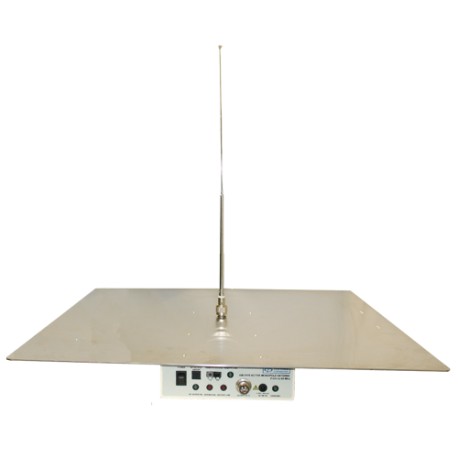 View larger
View larger Com-Power AM-741R Active Monopole Antenna with RAI-100, 9 kHz - 60 MHz
New
- Suitable for Mil-STD 461 and DO-160
- Frequency Range: 9 kHz to 30 MHz (useable up to 60 MHz)
- Included Remote Antenna Interface (RAI-100)
- Built in Amplifier
- Battery Power: 6V NimH Input: 6 VDC 500mA
- Calibration to ANSI C63.5 ESCM
Typically In Stock
PDF Downloads
Specifications
| Frequency Range | 9 kHz to 30 MHz (useable to 60 MHz) |
| Standards Met | Mil-STD 461,DO-160 |
| Gain | See Image Thumbnail |
| Application/Test Type | radiated emissions measurements, typically below 30 MHz. |
| Antennas Monopole Antennas | |
| Parameter | Value |
| Antenna Factor (1 Meter) | ±0.5 dB |
| Impedance | 50 Ohms |
| Connector | BNC (female) |
| Mounting Base | 1/4" 20 thread |
| Aperture | - |
| Weight | 9.5 lbs. [4.3 kg] |
Test Equipment Description
The AM-741R is an Active Monopole Antenna operating over the frequency range of 9 kHz to 30 MHz (usable up to 60 MHz). Its removeable, telescoping rod element is adjustable from 23 to 105 cm (approximately). Most standards specify a rod height of 104 cm (41 inches).
Due to the high impedance of the rod element, a matching network with a high input impedance and 50Ω output impedance (for connection to the measurement equipment) is needed. The AM-741R provides this and also incorporates a low-noise preamplifier, thereby increasing the sensitivity and signal to noise ratio of the measurement system.
The preamplifier can be powered by its internal, rechargeable 6 VDC NimH battery pack or the supplied charger/power adapter. The front panel has indicators for RF ON/OFF, power, battery low, amplifier saturation, as well as charging status. The matching network enclosure is secured to the bottom side of the of a 60.5 cm square, polished aluminum counterpoise.
Mounting
The AM-741 has a 1/4 inch x 20 threaded hole on the bottom of the matching network enclosure, which is used to secure the antenna to a tripod. Com-Power’s AT-220 Tripod is the recommended support for this antenna.
Remote Operation (Optional)
Remote antenna interface (RAI-100) is a fiber optic controller which can be used to monitor saturation and battery low conditions. It also allows the user to remotely enable/disable the RF measurement circuit.
Application
The AM-741R Active Monopole Antenna is used for radiated emissions measurements, typically below 30 MHz. It is commonly used for tests according to RE102 of MIL-STD-461, Section 21 of RTCA DO-160, CISPR 25 (automotive), and other various standards.
It is required per most test procedures, that the counterpoise be bonded directly to the ground plane on (or over) which the Equipment Under Test (EUT) is installed.
However, per the latest revisions of MIL-STD 461, the antenna may only be grounded through the shield of the output cable via a metallic bracket bonded to the chamber floor, directly below the antenna. It also specifies that the output cable be fitted with a ferrite, centered between the bracket and antenna output, having an impedance of 20-30Ω at 20 MHz. ComPower’s AMS-741 Monopole Grounding Kit, which includes the output cable (with ferrite), elbow adapter and grounding bracket, is available separately.
Calibration
The antenna is individually calibrated per SAE ARP958 using NIST traceable equipment. The data, along with certificate, are provided. Recognized ISO 17025 accredited calibration is also available upon request. Calibration of the matching network is performed using the Equivalent Capacitance Substitution Method (ECSM). The RF voltage from a 50Ω source is delivered to one leg of a T-connector, with the second leg terminated with 50Ω, and the third leg connected to the antenna input port through a 10 pF capacitor, which acts as a “dummy antenna”, simulating the high impedance of the rod. Com-Power’s AMC-10pF Calibration Capacitor is available separately.



